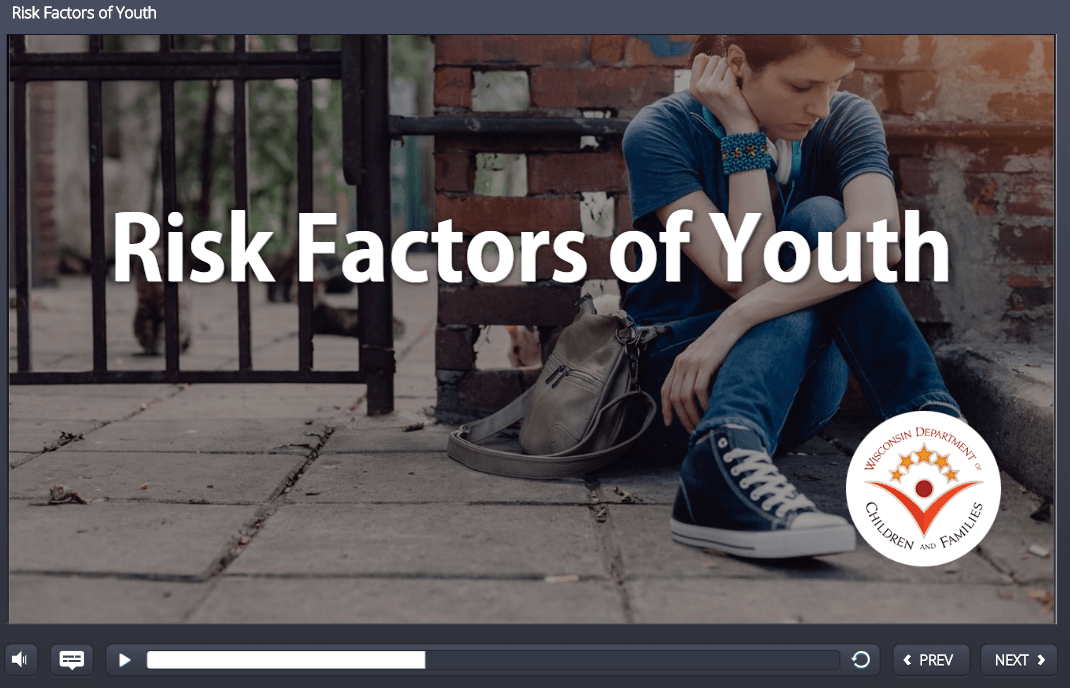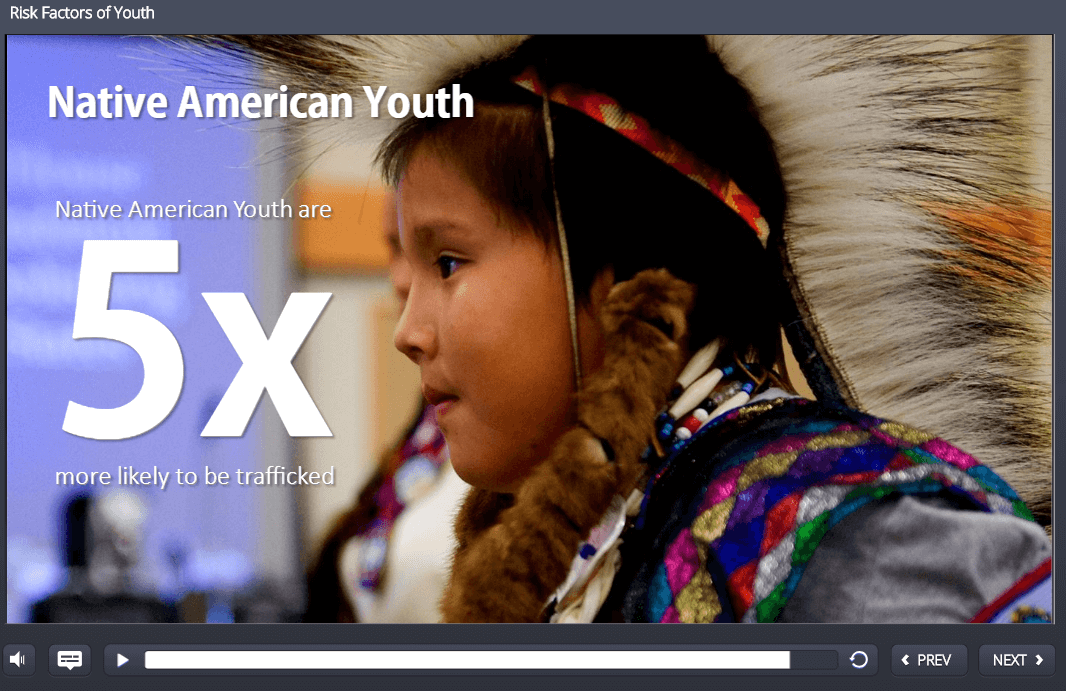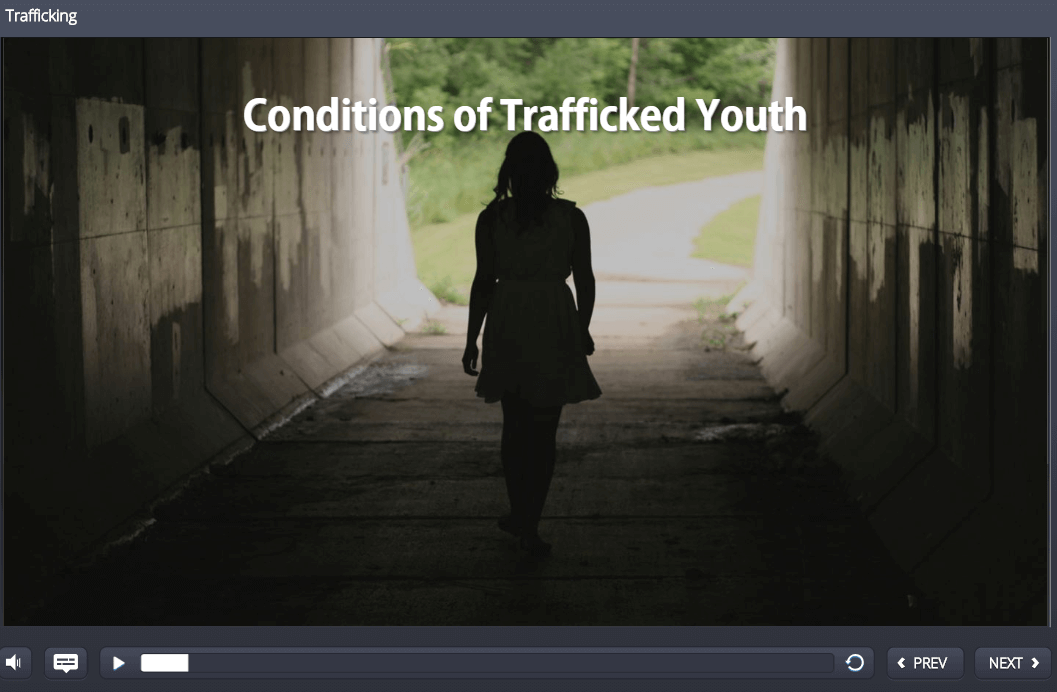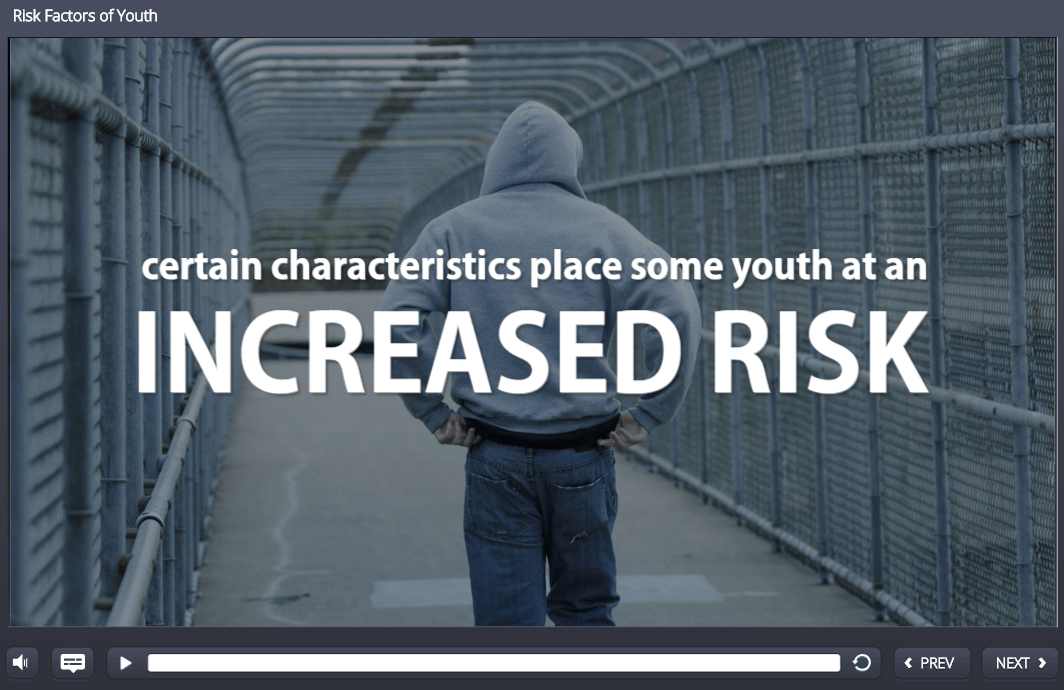
Human trafficking is the world’s fastest-growing criminal activity. It’s a pernicious problem in Wisconsin, too, affecting families in urban, suburban, rural, and tribal communities. How to turn the tide?
Part of the solution is educating professionals who come in contact with young people at risk of being sex trafficked. That’s why the Wisconsin Department of Children and Families partnered with University of Wisconsin–Madison Continuing Studies on Human Trafficking 101: Understanding Child Sex Trafficking in Wisconsin. It’s a self-paced online course available to social workers, therapists, educators, mental and behavioral health providers, runaway and homeless youth providers, staffers at out-of-home care programs, and other advocates.
Human Trafficking 101 presents an easy-to-follow overview of child and youth sex trafficking. With concise text and striking graphics, it examines the scope of sex trafficking, factors that increase a young person’s risk of being trafficked, and state resources that address the problem.
“This course will help us shine a light on the issue of trafficking and provide a cohesive, coordinated statewide response,” says Dr. Joy Ippolito, anti-human trafficking coordinator for the Department of Children and Families. “The more systems that are educated on trafficking, the harder it is for traffickers and buyers of sex to hide, the more cases we will prevent, and the easier it will be for survivors to come forward to get help and healing.”
Every corner of the state
Professionals who register for Human Trafficking 101 work through six modules that cover the basics of sex trafficking. They can complete the modules as their schedules allow, although they’re encouraged to finish all six within 30 days to ensure continuity in the learning experience. Participants can return to modules at any time to refamiliarize themselves with the material.
“Offering the course online through UW–Madison Continuing Studies eliminates the barrier of needing to travel to an in-person training to access this critical information, thereby allowing us to reach our partners in every corner of the state,” Ippolito says. “In addition, the training lets licensed social workers, psychologists, and family therapists earn continuing education units for their professional licensure.”
Last year, the Department of Children and Families collaborated with Continuing Studies on a series of anti-human-trafficking webinars for Wisconsin hotel staff. For Human Trafficking 101, the partners drew on materials recommended by the training workgroup of the Wisconsin Anti-Human Trafficking Task Force. The state Legislature provided funding for the project.
“The challenge was to reach audiences across the state in an online learning format, even places with low bandwidth requirements,” says Steven Boldt, director of online programming for Continuing Studies. “We have expertise in leveraging technology to design content for the adult learner, and we’re gratified that we can give people on the front lines the resources they need to combat human trafficking.”
Warning signs
Human Trafficking 101 has attracted hundreds of registrants since launching in July, and Ippolito expects it to gain traction among child welfare professionals throughout Wisconsin.
“Our hope is that professionals who work with young people will begin to look for the warning signs that someone is being trafficked and make a report to their local child welfare or law enforcement agency,” she says. “We also hope that professionals will preemptively offer support services to youth who are most vulnerable, as the goal is always to prevent trafficking from occurring.”
For more information or to register for Human Trafficking 101: Understanding Child Sex Trafficking in Wisconsin, see the course webpage.